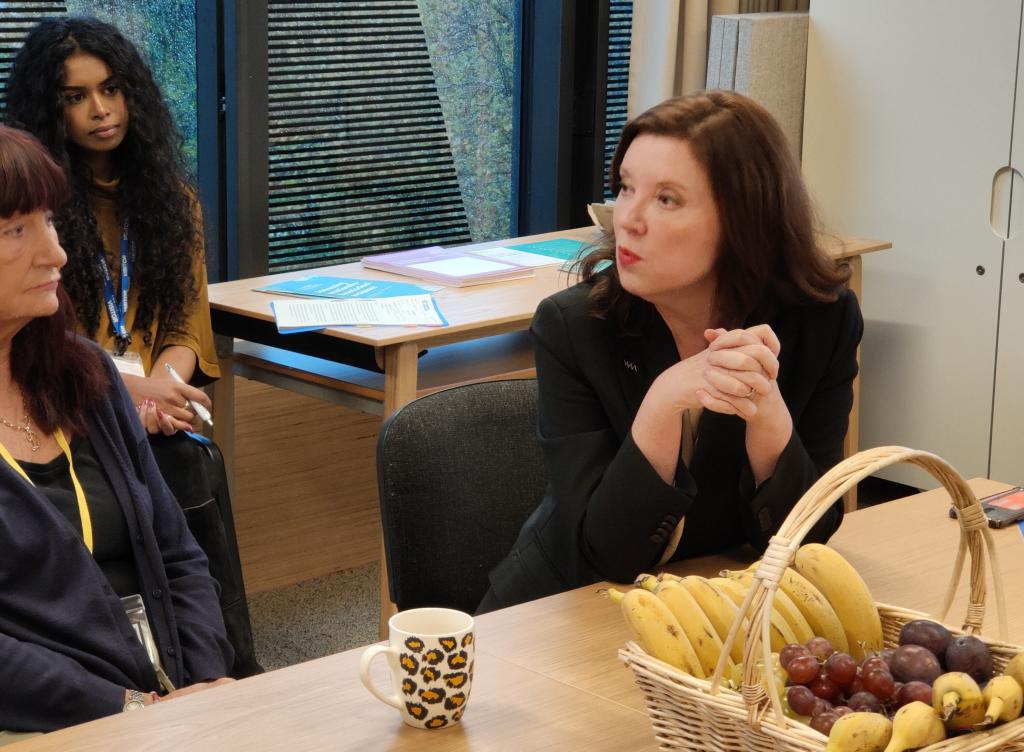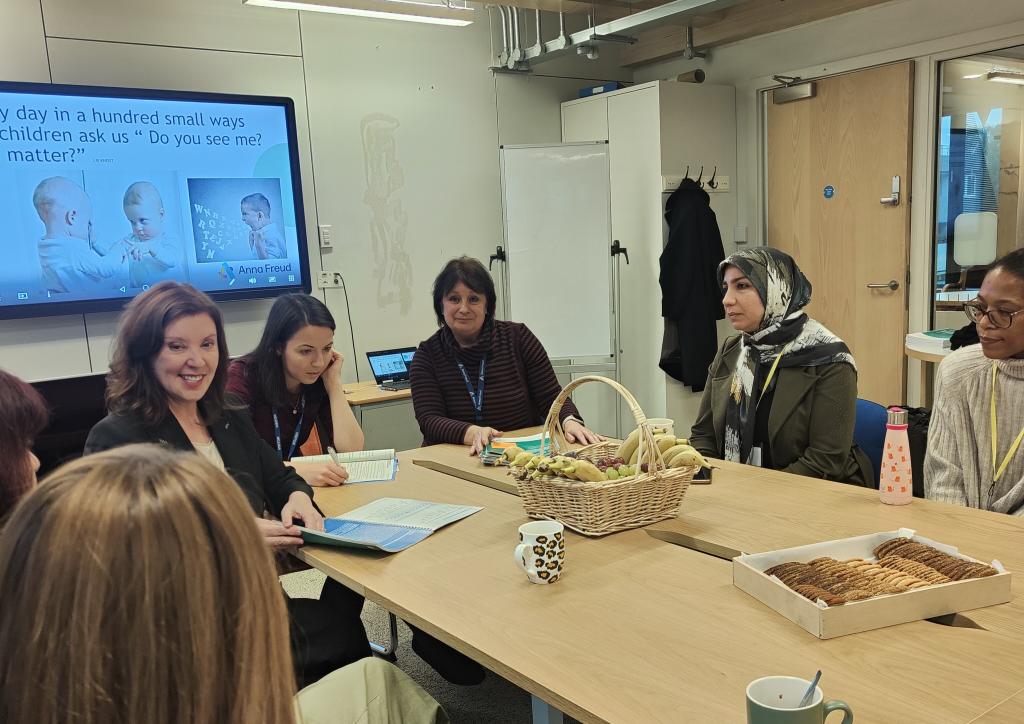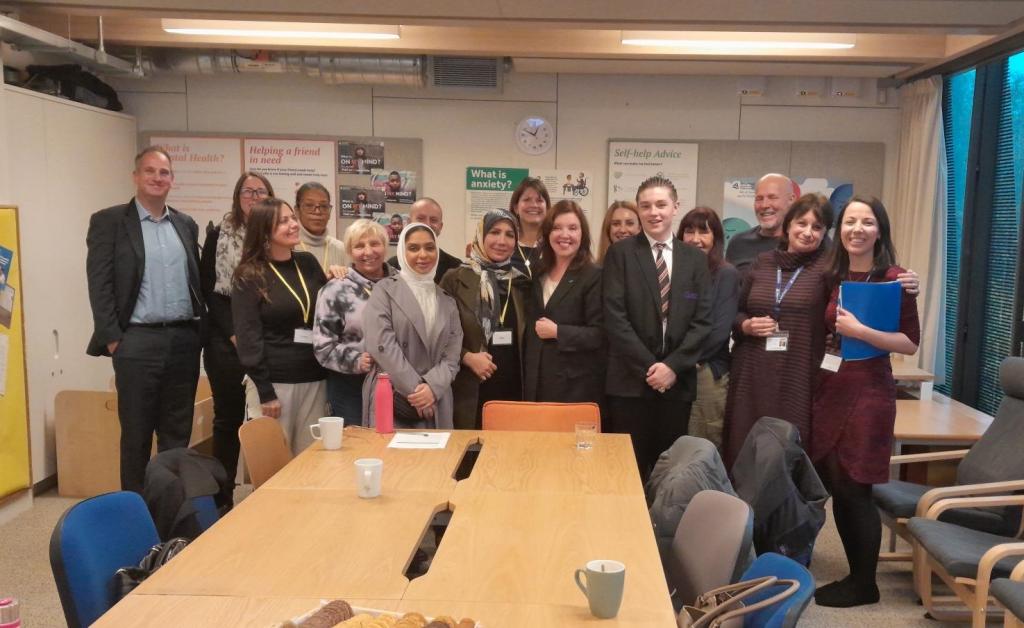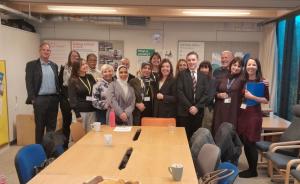In this blog, Brenda McHugh, co-founder of the Pears Family School and Consultant Psychotherapist (Inclusion and Specialist Help in Schools) at Anna Freud, tells us about the importance of a family-centric approach to Alternative Provision.
For the past 10 years, the Pears Family School has been doing something really innovative – but also incredibly simple – to help students who’ve been excluded from schools: putting families first.
For our school, which was founded and funded by Anna Freud, this means:
- Listening to parents and carers so we can better understand their child and their own family trauma of exclusion;
- Learning from the whole family unit about what may trigger a child to misbehave and altering our approach to fit individual needs; and
- Involving families in how we work through accredited training and co-designing lesson plans.
In the last academic year, our family-centred approach helped 71% of children who started school with us that September to reintegrate back into mainstream schools or appropriate provision. It also gave us added impetus to share far and wide the benefits of our approach and the learning we’ve gleaned.
This began with a visit from the Children’s Commissioner in November and we’re delighted to highlight some of our families’ feedback from this visit below.

Creating a culture of trust
“You can feel blamed as a parent when you’re getting daily calls from your child’s school about their behaviour, but it was totally different at The Pears Family School. We didn’t feel we were ever being preached at as a parent.”
Many of the children who are referred to our school have been through trauma and experienced ‘social thinning’.
Social thinning happens when a child is cut off from relationships and experiences as a result of their behaviour. Being the ‘naughty child’ and missing out on opportunities gives them less opportunities to develop and further increases their chances of psychological disorder. This can also happen to parents who feel the stigma of exclusion.
That’s why we work so hard to develop a culture of trust between the child, family and school. Parents and carers are invited to regular parent learning accredited training, which gives them the confidence to help to co-design lesson plans and join their child in class while they learn.
All this work means we can increase the “dosage” of help for every child. The school also strives to question a child’s behaviour rather than apportion blame. As teachers, we constantly research what may trigger a child and examine better ways of managing moments of distress.
We’d love to see this systemic care and culture replicated across all forms of mainstream education and Alternative Provision.

Facilitating family peer support
“The Pears Family School has been a safe space where parents can talk whole-heartedly.”
One parent came to our school every day for two years with their child. They saw his attendance rise from 6% in mainstream education to 92% with us. He is now studying for his A levels and has excellent predicted grades. He has also drastically improved his diet and physical health as his mental wellbeing developed. But this parent did so much more to help others.
They also spoke openly with other mums, dads, and carers. They shared their experiences and helped to create a place for others to speak. In their words, they went from feeling “desperate and scared” to helping “everyone to be truthful and honest in a real safe space”.
We’re passioned at about schools embedding a whole-school approach to mental health at Anna Freud and we share how in our Five Steps to Mental Health and Wellbeing. We also provide support through our Mentally Healthy Schools website and guidance on addressing emotionally-based school avoidance.
Almost 40,000 people are now signed up to Anna Freud’s Schools in Mind network while our Schools Division trained more than 2,000 education professionals over the past academic year.
Wellbeing as part of the curriculum
“We want students to want to be at school because they’re happy and feel understood –”
Our headteacher, Matthew Hillman, has helped to instill a mental health and wellbeing curriculum into our school day alongside family learning and academia.
Working in this way means we can help pupils to recover, reflect, rebuild and reintegrate into an education setting that’s right for them. Matthew and the school recognise that families, children and the education system all go through trauma during and after exclusion. As such, it’s essential that school staff are supported to carry out effective intervention as early as possible to earlier to prevent exclusions.

How we can help others
We’ve learned lots about what works – and what doesn’t – over the past 10 years and we want to help others build on what we’ve done.
Get in touch today to find out more about what we’ve done so far, and how we can help you.
We’d also be happy to share more details about our work with education professionals in mainstream and alternative provision. Reach out to the school to book in a chat or sign up to the Anna Freud Schools in Mind newsletter – a free network for education professionals sharing expertise about mental health and wellbeing






